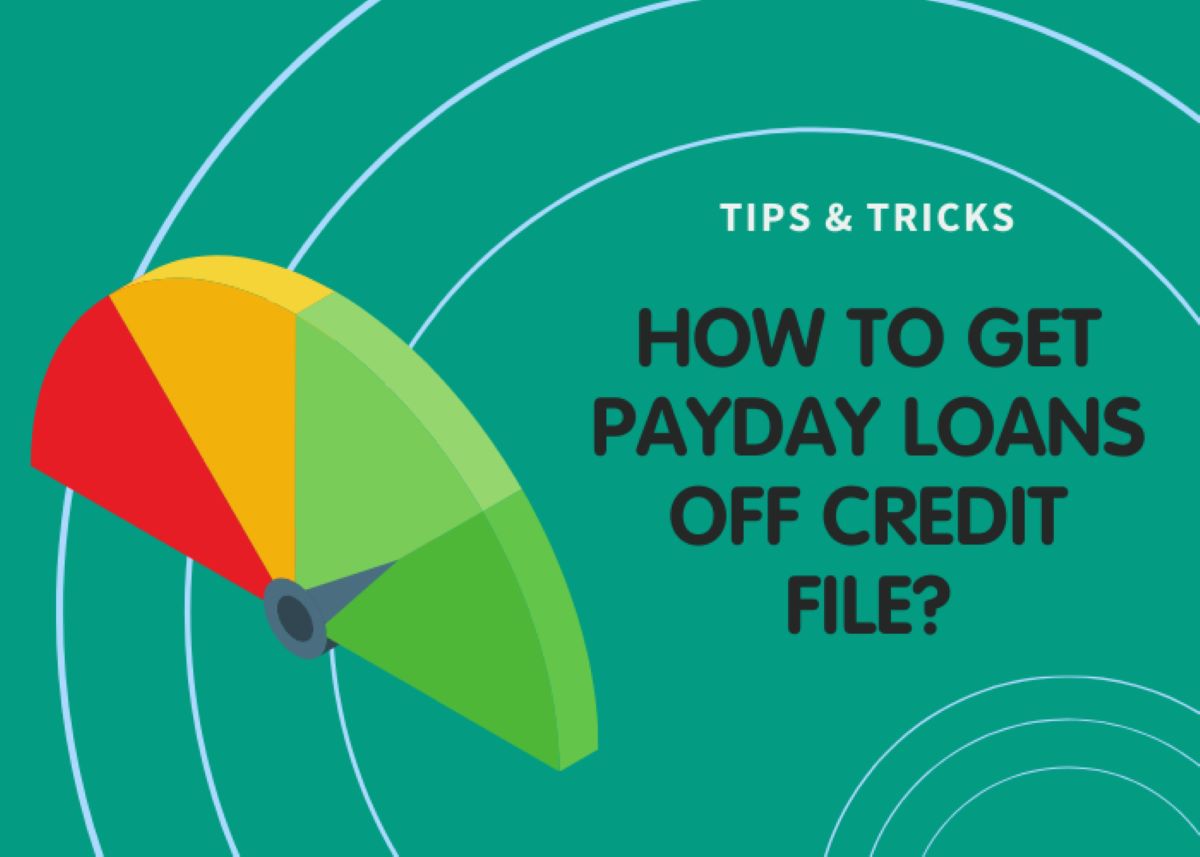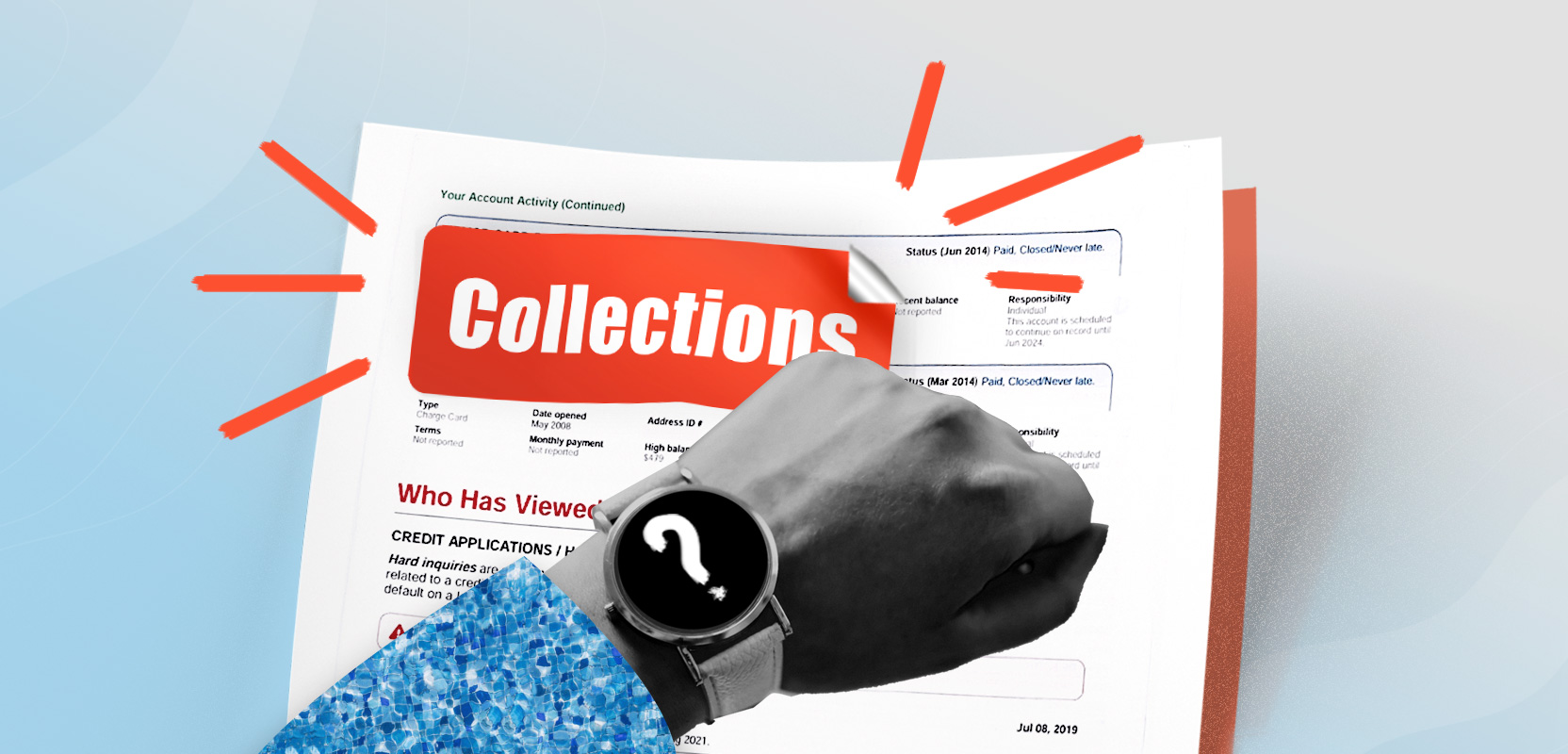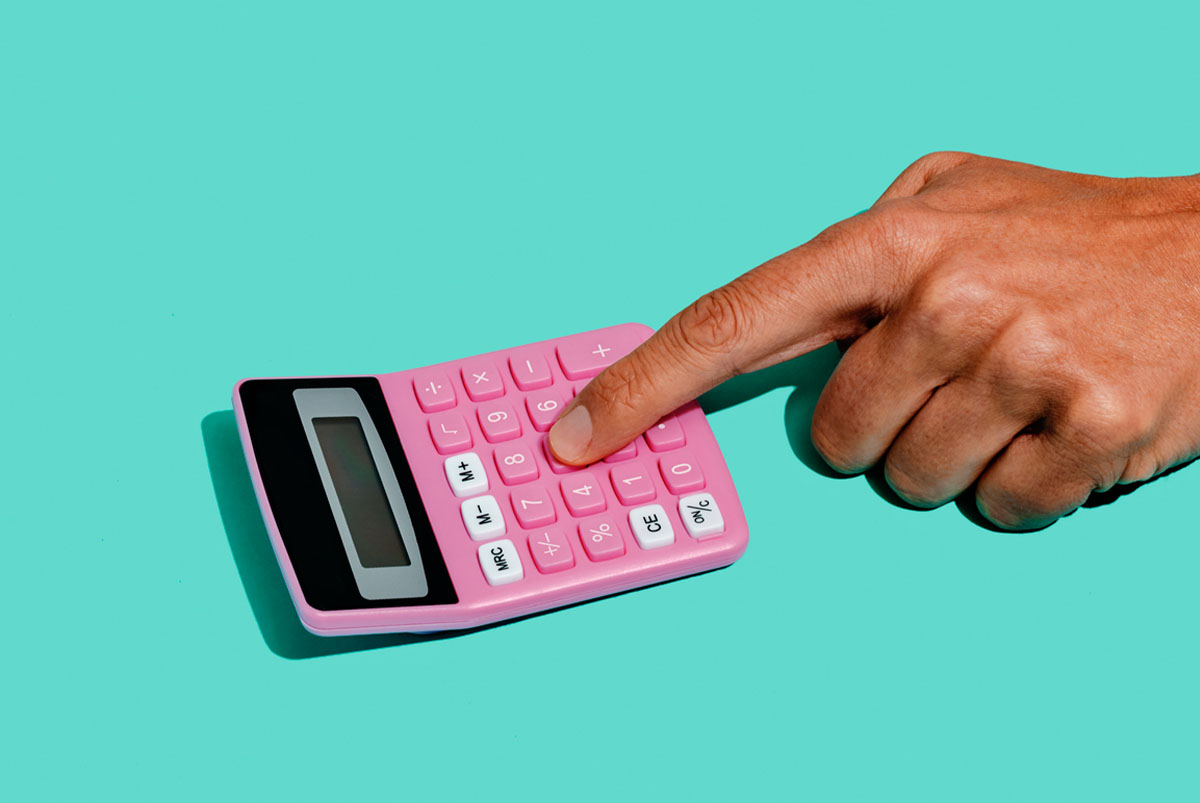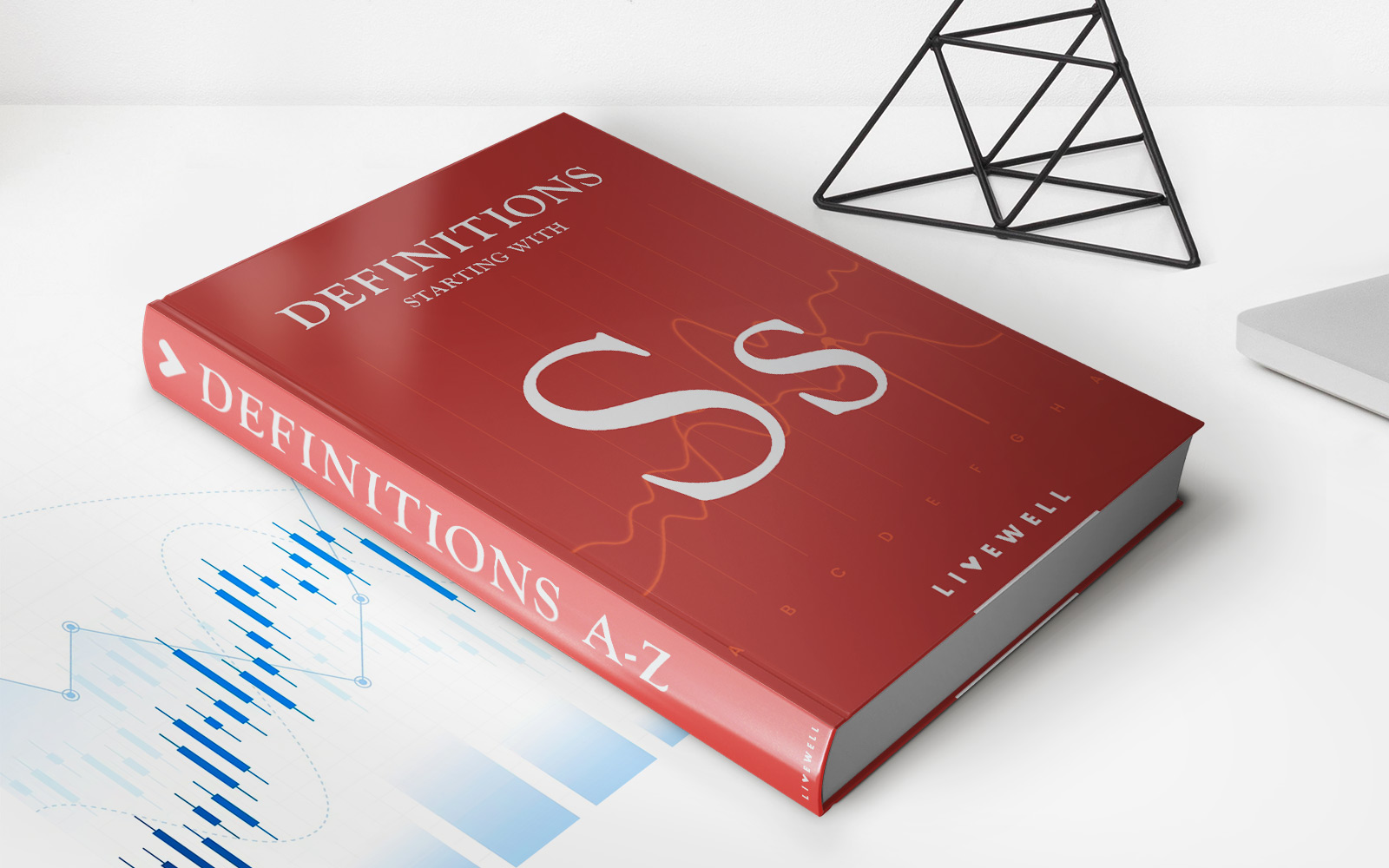Home>Finance>How Long Do Student Loans Stay On Your Credit After Paid Off


Finance
How Long Do Student Loans Stay On Your Credit After Paid Off
Published: January 11, 2024
If you're wondering how long student loans stay on your credit after they're paid off, this finance guide has all the answers you need. Gain insights today!
(Many of the links in this article redirect to a specific reviewed product. Your purchase of these products through affiliate links helps to generate commission for LiveWell, at no extra cost. Learn more)
Table of Contents
- Introduction
- Understanding Student Loans and Credit Reporting
- How Student Loans Impact Your Credit Score
- How Long Student Loans Remain on Your Credit Report
- Factors Affecting the Duration of Student Loans on Your Credit
- The Effects of Paid-Off Student Loans on Your Credit
- Strategies to Improve Your Credit After Paying Off Student Loans
- Conclusion
Introduction
Student loans have become a common financial tool for many individuals pursuing higher education. These loans provide students with the opportunity to fund their education and embark on a promising future. However, once you’ve paid off your student loans, you may be wondering how long they will continue to affect your credit.
Understanding how student loans impact your credit report is crucial for maintaining a healthy financial profile. Lenders and financial institutions use credit reports to assess an individual’s creditworthiness and determine their eligibility for loans, mortgages, or credit cards. Student loans are no exception, and their presence on your credit report can significantly affect your credit score.
In this article, we will explore the factors that determine how long student loans stay on your credit report after being paid off. We will also highlight the impact of student loans on your credit score and provide strategies to improve your credit after paying off your student loans.
Whether you’re a recent graduate or have been diligently making loan payments for years, understanding the nuances of student loans and credit reporting is essential to navigate the financial landscape successfully. So, let’s dive in and uncover the mysteries of student loan credit reporting.
Understanding Student Loans and Credit Reporting
Before delving into the details of how student loans affect your credit, let’s start by understanding the basics. Student loans are borrowed funds that help finance the cost of education, including tuition, books, and living expenses. These loans are typically provided by the government or private lenders, with repayment terms varying based on the type of loan.
When it comes to credit reporting, student loans are considered installment loans. This means that you borrow a fixed amount of money and repay it over a specific period, usually in fixed monthly installments. Installment loans, such as student loans, have a significant impact on your credit score as they reflect your ability to manage long-term debt responsibly.
Credit reporting agencies, such as Equifax, Experian, and TransUnion, track your financial activity and compile this information into your credit report. Your credit report contains details about your borrowing history, payment behavior, outstanding debts, and other relevant information. Lenders and creditors use these reports to assess your creditworthiness and determine your loan eligibility.
When it comes to student loans, every payment you make – or miss – is recorded in your credit report. Late or missed payments can have a negative impact on your credit score, making it important to make timely payments. Conversely, consistent on-time payments can positively impact your credit and demonstrate your responsible repayment behavior.
It’s important to note that student loans stay on your credit report even after they are paid off. This means that lenders and creditors will be able to see your history of student loan borrowing and repayment, even if the loans have been fully satisfied.
Now that we have a better understanding of student loans and credit reporting, let’s explore how student loans can impact your credit score.
How Student Loans Impact Your Credit Score
Your credit score is a three-digit number that represents your creditworthiness and financial health. It is used by lenders, landlords, and other financial institutions to assess your risk as a borrower. Student loans can have a significant impact on your credit score, both positively and negatively.
Payment history is the most crucial factor in determining your credit score, accounting for about 35% of the total score. Late or missed payments on your student loans can have a detrimental effect on your credit score. It is essential to make all loan payments on time to avoid any negative impact on your credit.
The amount of debt you owe, or your credit utilization, also plays a significant role in determining your credit score. Student loans, especially large ones, can increase your overall debt load and affect your credit utilization ratio. Keeping your student loan balances low in comparison to your available credit can help maintain a healthier credit score.
Another factor that affects your credit score is the length of your credit history. Student loans, particularly those taken out early in your financial journey, can contribute positively to your credit age. Having a well-established credit history can demonstrate your ability to manage debt responsibly.
In addition to payment history, credit utilization, and credit age, other factors such as credit mix and new credit applications also influence your credit score. Managing your student loans responsibly and diversifying your credit portfolio with other types of loans or credit accounts can positively impact your credit mix.
It’s important to note that while student loans can have both positive and negative effects on your credit score, their impact may vary based on individual circumstances. For example, individuals with a solid credit history and a mix of credit accounts may see less significant changes in their credit score compared to those with a limited credit history.
Now that we understand how student loans impact your credit score, let’s explore how long these loans remain on your credit report after they are paid off.
How Long Student Loans Remain on Your Credit Report
Once you’ve paid off your student loans, you might assume that they will no longer appear on your credit report. However, that’s not the case. Student loans typically remain on your credit report for a significant period of time, even after being fully paid off.
The exact duration that student loans stay on your credit report depends on the type of loan and the credit reporting agency. In general, federal student loans are reported for up to seven years from the date they are paid off or go into default. For private student loans, the duration can vary, with some lenders reporting them for up to ten years.
It’s worth noting that the credit reporting clock starts ticking from the date of the last activity or payment on the loan. So, if you made your final payment five years ago, the student loan may drop off your credit report in two years for federal loans or in five years for private loans.
However, even after these timeframes, the loan information may still be visible in your credit report under the “Closed Accounts” section. Lenders and creditors can still access this information when evaluating your creditworthiness for future loans or other financial transactions.
It’s important to review your credit report regularly to ensure that all information, including your student loans, is accurate and up to date. If you notice any errors or discrepancies, you can dispute them with the credit reporting agency to have them corrected.
Understanding the duration that student loans remain on your credit report is essential for managing your credit and financial future. While the visibility of student loans on your credit report may diminish over time, their impact on your credit score remains significant, especially if there are any negative payment histories associated with them.
Next, we will explore the factors that can affect the duration of student loans on your credit report.
Factors Affecting the Duration of Student Loans on Your Credit
While student loans typically remain on your credit report for a certain period of time, there are several factors that can affect the duration of how long they stay visible. Understanding these factors can help you better manage your credit and financial responsibilities.
1. Loan Type: The type of student loan you have can influence how long it remains on your credit report. Federal student loans are generally reported for up to seven years from the date they are paid off or go into default. Private student loans may have varying reporting periods, with some lenders reporting them for up to ten years.
2. Credit Reporting Agency Policies: Different credit reporting agencies may have varying policies regarding the duration of student loans on your credit report. It’s not uncommon for agencies to remove closed accounts after a certain period, while still maintaining the loan details in the “Closed Accounts” section for reference purposes.
3. Last Activity or Payment: The credit reporting clock starts ticking from the date of the last activity or payment on your student loan. This means that even if you paid off your loan years ago, it can still remain on your credit report for the designated duration from the last activity date.
4. Credit Reporting Errors: Occasionally, student loan information may be inaccurately reported on your credit report. These errors can prolong the duration of the loan’s visibility on your report. It’s important to regularly review your credit report and dispute any discrepancies with the credit reporting agency to have them corrected.
5. Credit Repair Efforts: If you have engaged in credit repair efforts, such as negotiating with the lender or entering into a payment plan, the duration of the loan on your credit report may be extended. This is because these activities can be considered as recent activity on the loan.
Understanding these factors can give you a clearer picture of how long your student loans will remain visible on your credit report. While you may not have control over some of these factors, such as loan type and credit reporting agency policies, it’s crucial to take proactive steps to maintain a healthy credit profile.
Next, we will explore the effects of paid-off student loans on your credit.
The Effects of Paid-Off Student Loans on Your Credit
One might assume that paying off student loans would automatically have a positive impact on their credit score. While it’s true that paying off your student loans demonstrates responsible financial behavior, the effects on your credit may not be as straightforward as you might think.
1. Credit Utilization: One of the key factors that determine your credit score is your credit utilization ratio – the amount of credit you’re using compared to your available credit. Paying off your student loans can decrease your overall debt load and improve your credit utilization, which can positively impact your credit score.
2. Payment History: Your payment history plays a significant role in your credit score. Consistently making on-time payments on your student loans demonstrates responsibility and can contribute to a positive credit history. When you pay off your student loans, it eliminates the risk of late or missed payments, which can further enhance your credit score.
3. Credit Mix: Having a diverse mix of credit accounts, such as credit cards, mortgages, and student loans, can positively impact your credit score. When you pay off your student loans, it removes a type of installment loan from your credit mix. However, the impact on your credit score will depend on your overall credit profile.
4. Length of Credit History: The length of your credit history also affects your credit score. Paid-off student loans show a history of responsible borrowing and repayment, which can positively influence your credit score. By keeping these accounts open and in good standing, you can maintain a longer credit history and benefit from the associated positive impact on your credit score.
It’s important to note that paying off your student loans doesn’t immediately remove them from your credit report. The loans will still be visible for a certain period of time, as mentioned earlier. However, the positive effects of paying them off, such as improving your credit utilization and payment history, can have a lasting impact on your credit score.
Additionally, paying off your student loans frees up financial resources, allowing you to allocate those funds towards other financial goals or investments. It can also improve your debt-to-income ratio, which is an important factor for lenders when evaluating loan applications.
Overall, paying off your student loans is a significant accomplishment that can have positive effects on your credit. It’s important to continue practicing responsible financial habits, such as making on-time payments on other credit accounts, to maintain and further improve your credit score.
In the next section, we will explore strategies to improve your credit after paying off student loans.
Strategies to Improve Your Credit After Paying Off Student Loans
Paying off your student loans is a significant milestone, but it doesn’t mean that your credit-building journey is complete. Here are some strategies to continue improving your credit after paying off your student loans:
1. Maintain a Positive Payment History: Continue making on-time payments for all your remaining credit accounts, such as credit cards or a mortgage. Your payment history contributes significantly to your credit score, so consistently paying your bills on time is crucial.
2. Diversify Your Credit Mix: While paying off your student loans might remove an installment loan from your credit mix, it’s important to maintain a healthy mix of credit accounts. Consider obtaining a credit card or other types of loans, such as a car loan or a small personal loan, and use them responsibly to demonstrate a well-rounded credit profile.
3. Monitor Your Credit Report: Regularly review your credit report to check for inaccuracies or discrepancies. Report any errors to the credit reporting agencies to have them resolved promptly. Keeping a close eye on your credit report will also help you detect any signs of identity theft or fraudulent activity.
4. Limit New Credit Applications: Be mindful of how often you apply for new credit. Each time you submit a new credit application, it generates a hard inquiry on your credit report, which can temporarily lower your credit score. Only apply for credit when necessary and shop around for the best terms and rates.
5. Maintain a Low Credit Utilization Ratio: Even after paying off your student loans, it’s important to keep your credit card balances and other revolving credit balances low. Aim to use no more than 30% of your available credit to maintain a healthy credit utilization ratio, which positively impacts your credit score.
6. Build an Emergency Fund: Establishing an emergency fund can help you avoid relying heavily on credit in times of unexpected expenses. Having savings to fall back on can prevent the need for accumulating credit card debt and helps you maintain a healthy financial outlook.
Remember, improving your credit is a gradual process that requires consistent responsible financial behavior. Implementing these strategies and maintaining good credit habits will help you continue building a strong credit history even after paying off your student loans.
Now, let’s wrap up our discussion.
Conclusion
Navigating the world of student loans and credit reporting can feel overwhelming, but understanding the impact of these loans on your credit is crucial for maintaining a healthy financial profile.
We discussed how student loans, as installment loans, can significantly influence your credit score. Timely payments, a healthy credit utilization ratio, and a diverse credit mix are all important factors in maintaining a positive credit history. Even after paying off your student loans, their effects on your credit can persist for several years.
Factors such as the loan type, credit reporting agency policies, and the date of the last activity contribute to how long student loans remain visible on your credit report. However, paying off your student loans can have positive effects on your credit score, such as improving your credit utilization ratio and payment history.
To further enhance your creditworthiness, it’s important to continue practicing responsible financial habits. This includes maintaining a positive payment history, monitoring your credit report for errors, diversifying your credit mix, limiting new credit applications, and maintaining a low credit utilization ratio.
Paying off your student loans is a significant accomplishment that frees up financial resources and improves your debt-to-income ratio. However, it is just one step in your overall financial journey. By implementing these strategies and maintaining good credit habits, you can continue to build a strong credit profile and achieve your financial goals.
Remember, credit improvement takes time, so be patient and consistent in your efforts. Regularly monitor your credit report, review your financial habits, and make adjustments as necessary to ensure a positive credit outlook.
With a solid understanding of how student loans impact your credit, you are better equipped to make informed financial decisions and take control of your credit future. By managing your credit responsibly, you pave the way for financial success and stability.
Embrace the opportunities that come with paying off your student loans and continue to strive for a brighter financial future.














